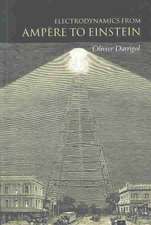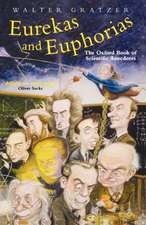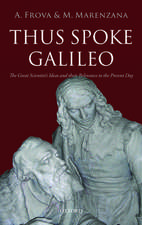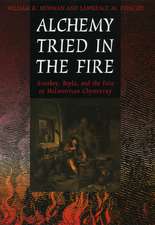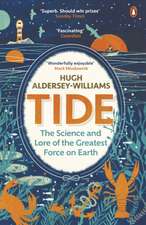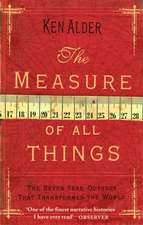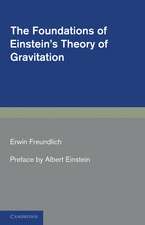Animal, Vegetable, Mineral?: How eighteenth-century science disrupted the natural order
Autor Susannah Gibsonen Limba Engleză Hardback – 23 iul 2015
Preț: 105.09 lei
Preț vechi: 120.09 lei
-12% Nou
Puncte Express: 158
Preț estimativ în valută:
20.11€ • 21.05$ • 16.64£
20.11€ • 21.05$ • 16.64£
Carte tipărită la comandă
Livrare economică 25-31 martie
Preluare comenzi: 021 569.72.76
Specificații
ISBN-13: 9780198705130
ISBN-10: 0198705131
Pagini: 238
Dimensiuni: 143 x 222 x 24 mm
Greutate: 0.36 kg
Editura: OUP OXFORD
Colecția OUP Oxford
Locul publicării:Oxford, United Kingdom
ISBN-10: 0198705131
Pagini: 238
Dimensiuni: 143 x 222 x 24 mm
Greutate: 0.36 kg
Editura: OUP OXFORD
Colecția OUP Oxford
Locul publicării:Oxford, United Kingdom
Recenzii
An outstandingly readable book on a highly interesting period of the history of biology that is instructive for amateurs and professionals alike.
...this is an excellent book. Not only is it full of interesting historical stories; it is also an amusing read and, ultimately, a wonderful reminder that history of science is fun.
Gibson's book does an excellent job in describing how our ideas about the order of nature changed and developed during the eighteenth century.
Highly readable.
Susannah Gibson unpacks the experiments and speculations that underpinned Enlightenment natural history, showing how finds pushed at disciplinary boundaries... Gibson's story whisks us from one taxonomical can of worms to the next.
[An] attractive and clearly written study... Gibson's account does justice to the reach of technical work by individuals, sometimes enthusiasts as much as scientists. And her plain style opens out for the reader enduring arguments about life, its sources and its varients.
Animal, Vegetable, Mineral? is replete with relevance for today. After all, from genetically modified food, to debates about environmental policy, to medical advances, biology remains central to many scientific, political and popular controversies ... an excellent, valuable and engaging introduction to the intellectual trends that helped shape the modern scientific world, and demonstrates how history can inform debates facing us today.
This is a book well worth reading and it will enliven many a classroom lecture.
...this is an excellent book. Not only is it full of interesting historical stories; it is also an amusing read and, ultimately, a wonderful reminder that history of science is fun.
Gibson's book does an excellent job in describing how our ideas about the order of nature changed and developed during the eighteenth century.
Highly readable.
Susannah Gibson unpacks the experiments and speculations that underpinned Enlightenment natural history, showing how finds pushed at disciplinary boundaries... Gibson's story whisks us from one taxonomical can of worms to the next.
[An] attractive and clearly written study... Gibson's account does justice to the reach of technical work by individuals, sometimes enthusiasts as much as scientists. And her plain style opens out for the reader enduring arguments about life, its sources and its varients.
Animal, Vegetable, Mineral? is replete with relevance for today. After all, from genetically modified food, to debates about environmental policy, to medical advances, biology remains central to many scientific, political and popular controversies ... an excellent, valuable and engaging introduction to the intellectual trends that helped shape the modern scientific world, and demonstrates how history can inform debates facing us today.
This is a book well worth reading and it will enliven many a classroom lecture.
Notă biografică
Susannah Gibson is an affiliated scholar at the Department of History and Philosophy of Science, University of Cambridge. She holds a PhD from the University of Cambridge on the history of the life sciences in the eighteenth century.





